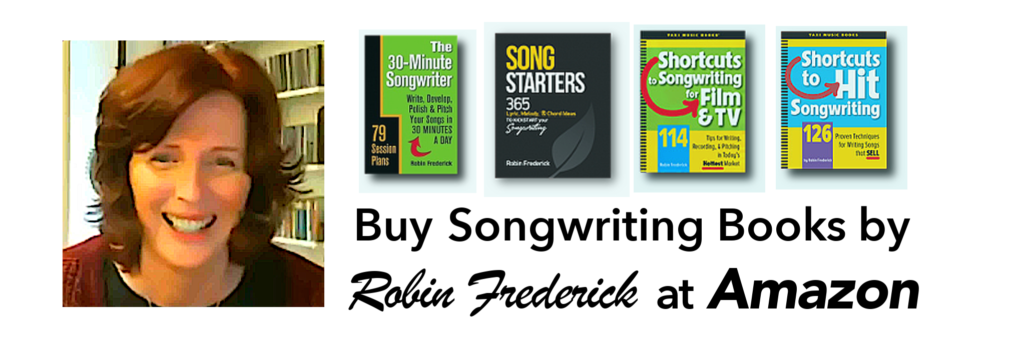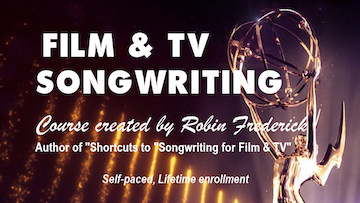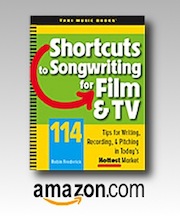Songs are used in movies, television series, and commercials to enhance the emotion and memorability of the onscreen action. Instrumental underscore has long been a staple of film and TV, adding drama and emotion to a scene. But when lyrics are added—when a song is used instead of an instrumental—there are extra benefits and a few potential problems.
For example, lyrics that are too specific or feature their own story lines can conflict with the script. If a song lyric includes a place name, like”I Love Paris,” the viewer could become confused if the scene takes place in New York.
Film and TV music supervisors look for songs with “universal lyrics,” lyrics that won’t conflict with a scene but will enhance the mood or energy. If you’re planning to pitch your songs to this market, you’ll have a better chance of success if you keep this in mind.
A universal lyric is…
A lyric that many people can identify with or relate to.
A lyric that focuses on emotion rather than storyline.
A good lyric for film and TV is broad enough to allow the song to be used in a variety of scenes while still maintaining emotional integrity, originality, and focus.
Use a common theme
Film and television scenes are filled with the kinds of emotions that many people feel. Whether the story takes place on the Starship Enterprise or some ancient Roman fortress, the emotions will always be ones that today’s audiences can relate to: falling in love, overcoming hardship, conflict, betrayal, or triumph. Emotions are universal so that’s what a good universal lyric will focus on.
No song will work for every scene but some emotional situations occur more frequently than others. When you watch TV, notice the types of scenes and characters you see and the emotions that drive them. If you choose one of these to write about, you’re more likely to be successful. Chances are you’re already using some of them in your songs.
A universal lyric focuses on an emotion.
Imagery, emotional details, and a fresh approach to your theme will all add muscle to a universal lyric, making it more appealing to film and TV. Choose an emotion to write about then describe it: How does it feel in your body? What does it remind you of? Is it dark or light, serious or fun? What can you compare it to?
Learn more about adding emotion to your lyrics.
You can write from personal experience or use an emotional scene in a film or TV show. Put yourself in the characters’ shoes and write a song that expresses their feelings. Choose a scene with a lot of emotion. You can even try using some of the dialogue in your lyric. Create a title that sums up the feeling in the scene. Then use the Ten Steps for writing a song to develop your idea.
Avoid doing the script writer’s job
The script writer will handle the details of the story. Let them do their job while your song keeps out of the way.
If you include a lot of specific physical details in your song, like place names, proper names, and dates, you’ll limit the uses for your song because your lyric may conflict with the details in the scene. If your song is called “I Love You, Sheila” it could be confusing to viewers if there’s no character named Sheila in the scene. A music supervisor won’t ask you to make changes. So Sheila won’t get used.
Try a more universal lyric, maybe replacing “Sheila” with “she is…” Let the script writer choose the characters’ names.
Your song will be used under a single scene
If your song tells the story of two lovers who meet in a bus station, get married two months later, then get a divorce after a year, your song won’t work with a single scene. There’s too much time going by. No scene does that.
A montage of scenes is the sole exception. It would have to be a montage of scenes that told the same story as your lyric. But then your song would be too “on the nose,” a phrase that means the song is describing the action that’s going on. That’s another big no-no in film and TV.
The best way to approach universal lyrics is to keep your song focused on a single emotional moment in the singer’s life. Let the singer tells us what he or she is feeling, so we can feel it, too.
Read more about writing for and pitching to the Film & TV song market.
by Robin Frederick



